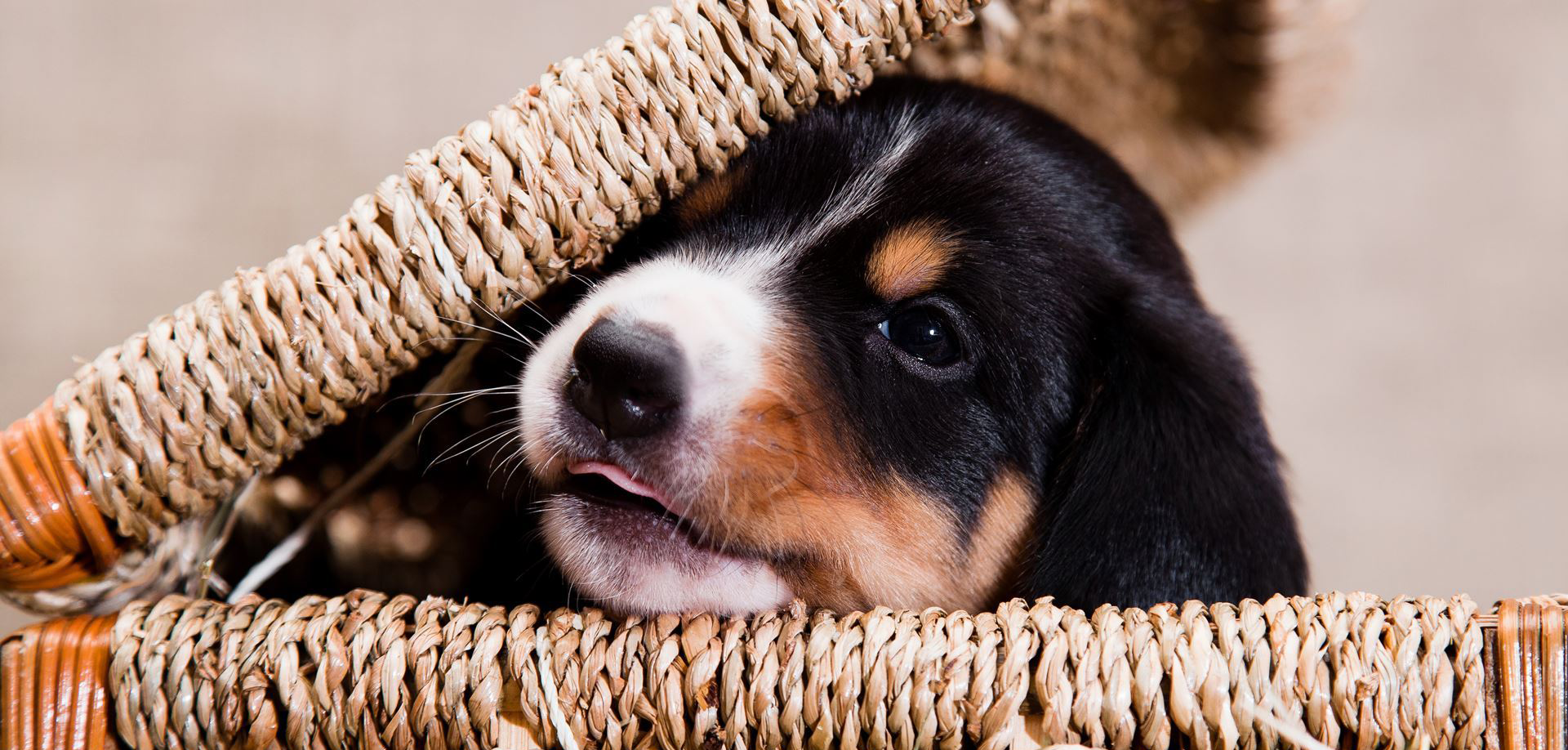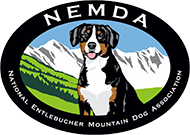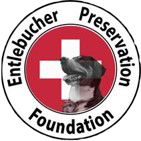 Guidance and Tips on Your Entlebucher Puppy
Guidance and Tips on Your Entlebucher Puppy
First Steps
1. Purchase a crate and a x-pen to aid in house training and be a safe place when the pup cannot be supervised.
2. Provide a space for long-term confinement which will contain a comfortable bed or crate, water bowl, plenty of chew toys filled with kibble or treats and pads.
3. Purchase a collar and at least a 6 foot leash. NO retractable leashes.
4. Locate a training center. Sit in on some classes, puppy and advanced before signing up. Puppy classes should include time for socialization and training.
5. Purchase high-quality dog foods and treats - dry, wet, or even raw.
6. Begin socialization immediately:
- Puppy class will help teach bite inhibition and introduce the pup to lots of different breeds.
- Invite all your friends to meet the puppy which will help train and teach it to take food gently.
- Carry the puppy into large pet stores to meet lots of different people.
- Introduce the puppy to your children’s friends and invite neighborhood children over.
- Take the puppy with you to meet lots of people to places and businesses that allow dogs.
7. Purchase toys to stuff with kibble & healthy treats.
8. Above all - take your puppy to your vet for an initial checkup, vaccines, dewormers, etc. Keep to the schedule of those checkups and appointments.
Training Tips
1. Enroll your puppy in Puppy Classes at 10 weeks of age.
2. Teach your puppy that his/her name means wonderful things will happen.
- Begin by saying its name and giving a treat: Name-Treat (treat should be high value like chicken, beef liver or beef heart cooked and cut into pea sized pieces). Repeat 10 times a session with many sessions in a day.
- When he/she is in the same room with you but not looking, say his/her name only once. If he/she turns to look or comes to you, say Yes and offer a treat. If he/she doesn’t turn to look at you or come, go back to step 1.
- When step 2 is mastered and the puppy is coming to you every time it hears its name, call the pup’s name when he/she is in another room. He/she should come running to you. If not, go back to step 2. Only call his/her name once.
- Remember never to use your dog’s name for things he/she does not like, such as toe nail clipping, baths or grooming, medications, etc. Instead, go and get him/her.
- Do use his/her name for things he/she does like, such as coming for dinner, going for a walk, playing a game, going for a car ride.
3. Learn how to teach your pup to sit by luring (taught in puppy class) and practice often every day. He/She must always sit first before being petted, getting his/her chew bones or toys, going outside, being fed his/her meals or anything else he wants. If he/she doesn’t sit… he/she doesn’t get it. It should become a default behavior so that every time you walk up to the puppy or he/she comes up to you, he/she will sit.
4. Jumping up on you—don’t reward it. NEVER touch him/her, talk to him/her, make eye contact or acknowledge his/her existence in any way if he/she jumps on you. Look or turn away and turn to stone. Only, when he/she sits will he/she be rewarded. YES, good puppy, food reward and treats.
5. Pulling on the leash—never reward a puppy for pulling on the leash by walking forward. If you feel tension on the leash, make like a tree and wait for the puppy to turn toward you, say YES and offer a food reward and wait for the puppy to come to you to get it. Reward often for keeping a loose leash. You can also back up which will bring the puppy around to face you or turn and walk in the opposite direction and reward when the pup catches up. All three methods will teach the puppy that he/she cannot continue to go in the direction that he/she wants if they pull on the leash.
Puppy Wisdom
1. NEVER leave a puppy unsupervised.
2. Pups become destructive when they are bored or lack supervision so provide plenty of chew toys and educational toys to keep them busy and entertained.
3. Providing stuffed chew toys or bones teaches the pup what is okay to chew on, how to settle down, and prevents barking.


.svg)


